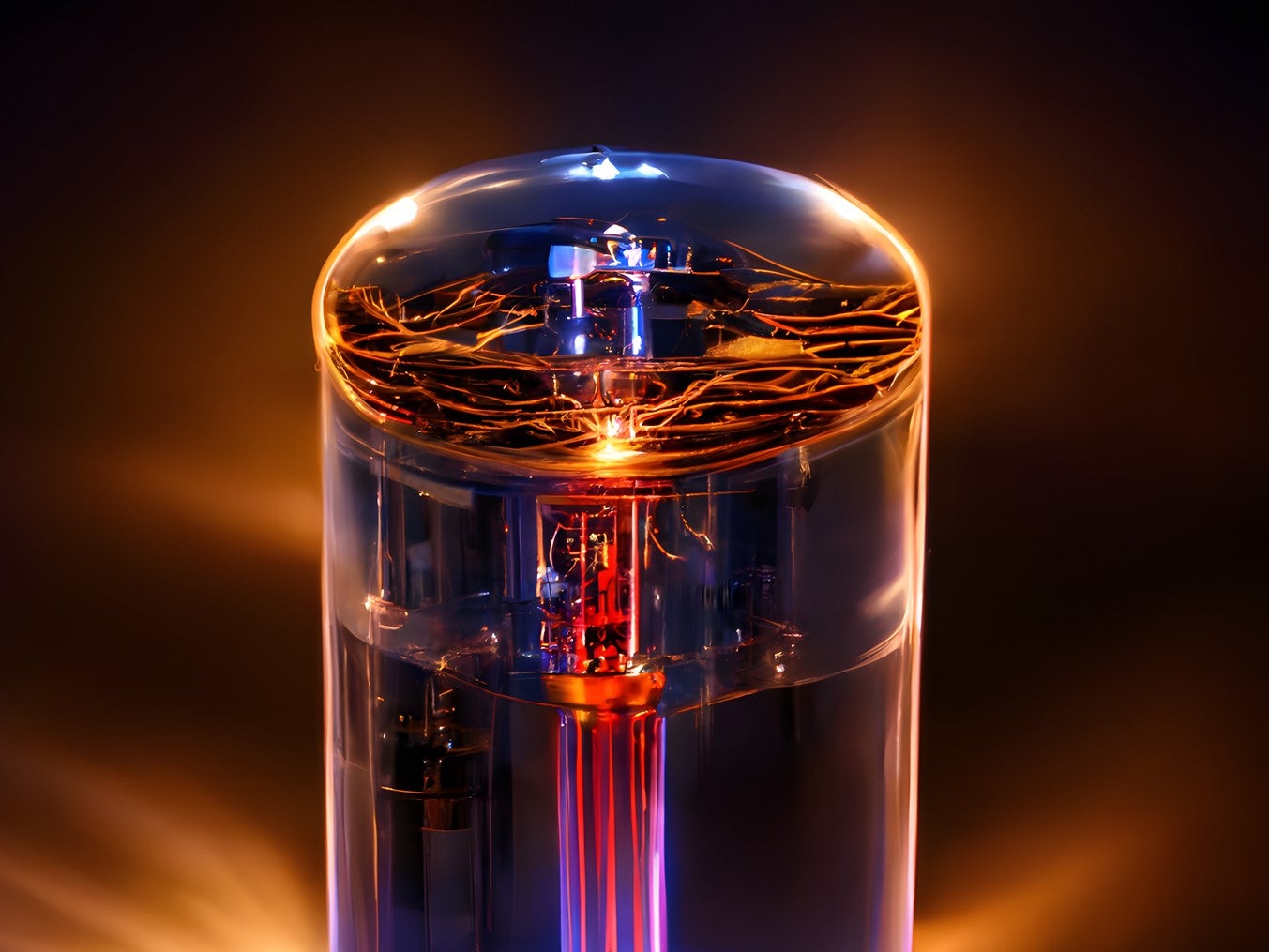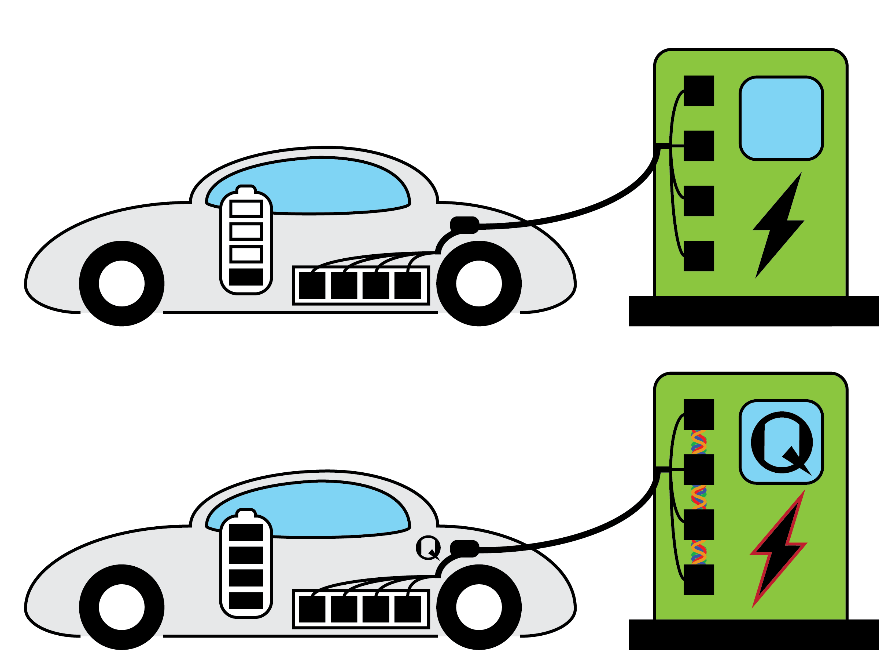Quantum batteries offer revolution in energy storage
It could mean everlasting electronics and cars that recharge quicker than it takes to fill up a tank of fuel. Anthony Cuthbertson discovers that scientists leading the development of quantum batteries are now optimistic of making them a reality


Imagine recharging your phone with the flick of a switch. Or a battery charging directly from the sun. Or electronics never losing efficiency. This is the future envisioned by a group of scientists currently working on a technology that, if successful, could forever change the way we interact with the world and each other.
The technology is quantum batteries, which unlike their conventional chemical counterparts – such as the lithium-ion batteries found in smartphones and electric cars – store energy from photons, not ions and electrons. The only problem is, no one is quite sure yet whether they will actually work at scale.
First formally proposed in 2012 by researchers at the University of Gdansk in Poland and KU Leuven in Belgium, quantum batteries rely on the mysterious properties of quantum mechanics, specifically a phenomenon known as superabsorption. This involves a principle relating to a molecule’s ability to absorb light, and means that quantum batteries actually become more efficient with each new molecule that is added.
Unlike lithium-ion batteries, which charge each cell independently of each other, the process of quantum entanglement means the cells charge collectively. This results in the counterintuitive outcome that the charging speed improves as the size of the battery increases. On top of that, they do not ‘age’ in the same way that today’s batteries do, so their charging capacity would never diminish, no matter how many charge/discharge cycles they go through.
While they are still largely in the theoretical stages of development, the first experimental quantum batteries have already been realised. Last year, an international collaboration involving teams in Australia and Italy was able to demonstrate a proof-of-concept device that finally proved the concept of superabsorption.
One of the scientists who led the research, Dr James Quach from the University of Adelaide, claims that the first small devices to incorporate quantum batteries could be produced within the next three to five years.
“In the same way that there has been a lot of recent investment in quantum computing, other operations about transferring energy or even harvesting energy can in principle be made faster by using quantum effects,” Dr Quach told The Independent.
“At the moment, the proof-of-principle devices we made are still quite small, and the charging occurs with light, so immediate applications would need to work with those constraints.”
These constraints involve using lasers or light rather than electricity to charge the batteries, which means the entire charging infrastructure would need to be rethought before they become a widespread reality. Other challenges include figuring out how to store and release a quantum battery’s energy in a simple and reliable way.

Another scientist at the forefront of quantum battery research is Dario Rosa from the Institute for Basic Science in South Korea, whose calculations suggest that quantum batteries would reduce typical home charging times of electric cars from 10 hours to just three minutes. Charging at a dedicated supercharger station would see this time drop from 30 minutes to just over a minute – roughly the same amount of time it takes to fill a fuel-powered vehicle’s tank.
“The theoretical developments show that, in principle, quantum batteries can be charged essentially instantaneously, if global charging operations will ever be available,” Dr Rosa told The Independent. “The potential implications of this capacity are enormous.”
Dr Rosa has written several papers on quantum batteries, pushing forward our understanding of what is referred to as quantum charging advantage – the capacity to charge faster and faster when charged collectively.
“Quantum charging advantage would allow them to charge increasingly faster the more the batteries are entangled together during the charging process,” he said. “Such a capacity is genuinely due to quantum effects.”
These are the same effects that allow quantum computers to become exponentially more powerful the more qubits (the basic unit of information in quantum computing and counterpart to the bit in classical computing) are added to a system, but they are also the reason why it is so difficult to move from the theoretical stage of the research to the experimental realisations.
Estimates for when the first practical quantum batteries make their way into everyday electronics ranges from a few years to a few decades. But if they are realised, the implications would be enormous.
Harnessing energy storage within the quantum states of atoms and molecules would result in vastly more powerful batteries that are capable of charging nearly instantly. Everything from consumer electronics to renewable energy storage solutions could be revolutionised, while other industries may also benefit.
Beyond ultra-fast charging batteries, the underlying principle of superabsorption could also theoretically be used to increase the efficiency of solar cells, making it possible for solar panels to both harvest and store light energy simultaneously.
If practical quantum batteries are realised, scientists believe they will “completely revolutionise” the way we use energy.
“If quantum batteries become practical, this would disrupt more than one industry”, said Dr Quach. “The technology that underpins quantum batteries is very different from current battery technologies and would open new opportunities in how energy could be stored, captured and delivered.”
Join our commenting forum
Join thought-provoking conversations, follow other Independent readers and see their replies
Comments


Bookmark popover
Removed from bookmarks